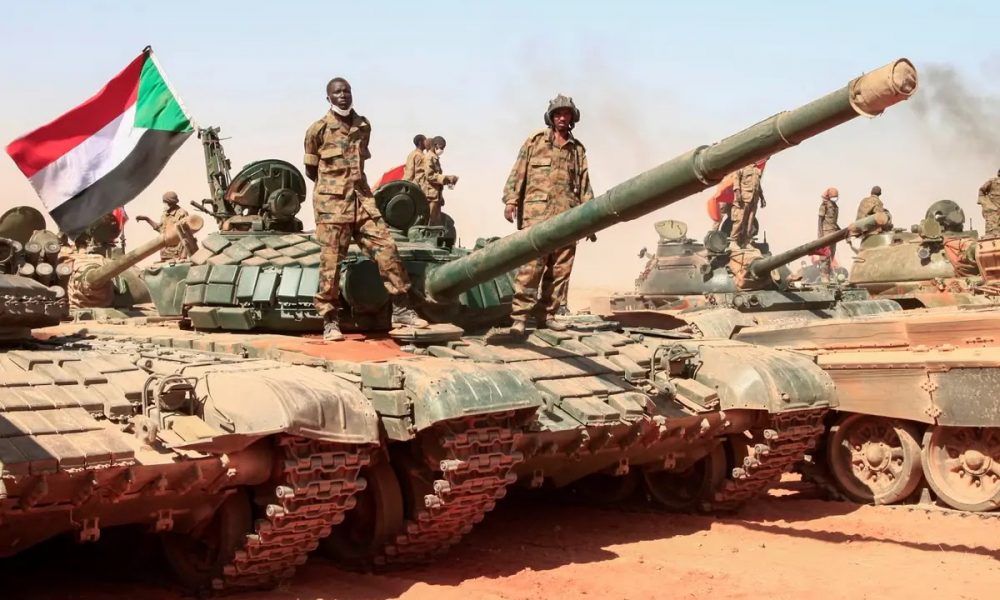By Bida Elly David
As South Sudan brokered 7 days’ truce between Sudan’s Armed Forces (SAF) and the paramilitary Rapid Support Forces (RSF) supposedly taking effect yesterday, fighting rages on in the capital, Khartoum.
Reuters reported that fierce fighting could be heard in central Khartoum yesterday as the army tried to push back the paramilitary Rapid Support Forces (RSF) from areas around the presidential palace and army headquarters, with a lasting ceasefire appearing elusive.
It is probably the sixth time that ceasefire agreed in principle by the warring generals has not been either effected or adhered to.
The fluid situation that broke out since April 15 is giving headache to regional and international bodies trying to mediate for a sustainable truce and possible talks to settle the chaotic situation in Sudan.
The two military rivals and principals agreed to a new and longer seven-day ceasefire bothered by President Salva Kiir as IGAD lead mediator.
According to foreign affairs ministry, President Kiir spoke with Al-Burkan of SAF and Hemedti of RSF who reportedly agreed in principle for a 7-day long ceasefire that was to take effect on Sunday.
South Sudan being the key mediator to the crisis between the two Sudanese generals was distorted as more air strikes and shootings in the capital Khartoum region undercut their latest supposed truce.
Previous ceasefires starting with 24hrs to 72hrs and now 7 days had been agreed by the rivals but none has been fully reported.
South Sudan acting minister of foreign affairs Deng Dau Deng underscored in a statement on Tuesday that mediation championed by president Kiir had led both sides to agree a weeklong truce from Thursday 4-to-11 May and to name envoys for peace talks.
According to Al-Web Arab media, Sudan’s Health Ministry reported on Tuesday that 550 people have died and 4,926 injured adding that the conflict has also created a serious humanitarian crisis, with around 100,000 people forced to flee with little food or water to neighboring countries, the United Nations said.
On Tuesday, witnesses according to Al-Web Arab reported more air strikes in the cities of Omdurman and in Bahri, both on the opposite bank of the Nile River from Khartoum.
Foreign governments were winding down evacuation operations that sent thousands of their civilians home.
However, the efforts invested by President Kiir engaging the two Sudanese military rivals to cease fire seemed a waste of political efforts.
In an interview with No.1 Citizen Daily Newspaper, James Boboya a political analyst doubts that South Sudan mediation efforts will bring peace between the two rival generals after the duo refused to adhere to a series of ceasefire.
He noted that restoring intimacy between two military rivals will take time and cause more harm to the civilians thus urging the South Sudan government to give the two rivals time to decide to forgive themselves.
“If the two rivaling parties can not listen to the regional bodies (who) they to listen to South Sudan are. There is no way South Sudan will prevail calm among them. Let them be left to decide whether to surrender guns or not,” he said.
Meanwhile, Edmund Yakani, the Executive Director for CEPO recently said the continuous conflict in the Sudan will not only affect South Sudan but the whole horn of Africa adding that the two rivals need to double efforts towards subsidizing the insecurity caused in the nation.
At the same note, the UN head António Guterres on Wednesday said they had failed to quell the on-going clashes in the Sudan as rivaling parties hesitate to surrender arms.
“We failed to stop war from erupting in Sudan, where persistent fighting between rival generals undermined efforts to firm up a truce,” Guterres said.
He added that a country like Sudan that has suffered so much cannot afford a struggle for power between two people.
The UN on Wednesday called for security guarantees at “the highest level” to ensure desperately needed aid deliveries in conflict-hit Sudan, after six trucks carrying food aid to the Darfur region were looted.
Top UN humanitarian official Martin Griffiths insisted on the need “to be sure that we have the commitments publicly, clearly given by militaries, to protect humanitarian systems to deliver”.




